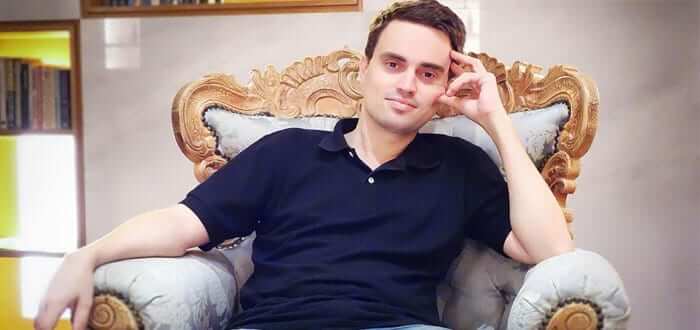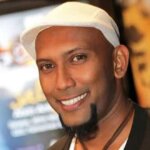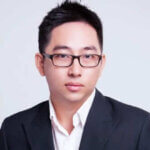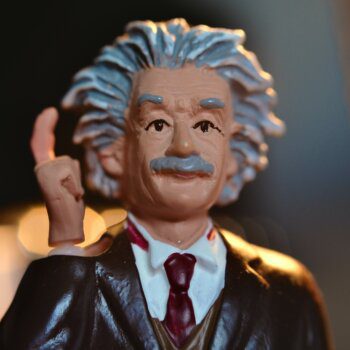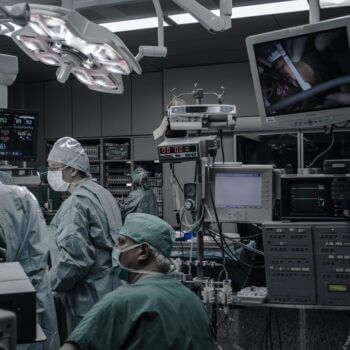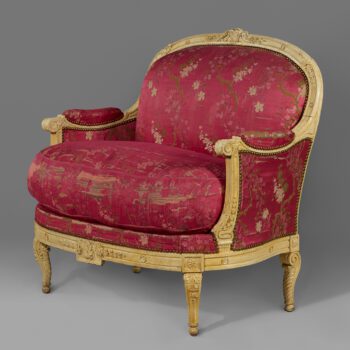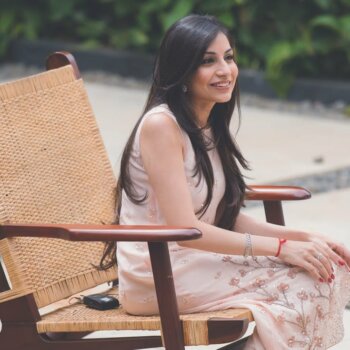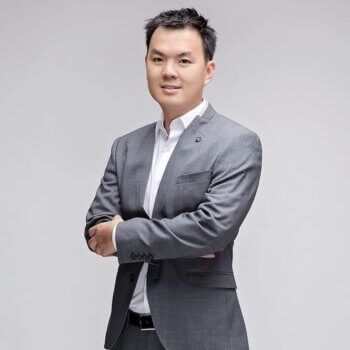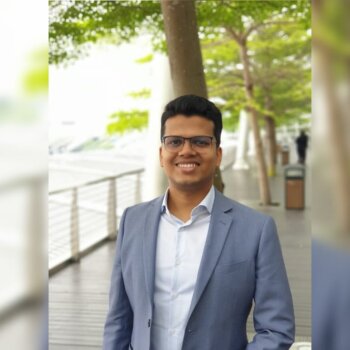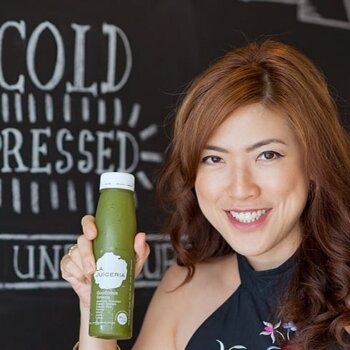At age 5, Francois had his first interaction with computers, a mainframe from “l’école Militaire” in Paris, in front of the Eiffel tower. The mainframe was primarily used to search for information but also to play NIM(a mathematical strategy game) against the computer. Francois enjoyed crashing the logic behind the NIM’s artificial intelligence via discovered loops and bugs. His early encounters with artificial intelligence intrigued him and would sow the seeds for his conception of Healint, 3 decades later.
Whilst studying, Francois started meeting and learning from brilliant computer whizzes and hackers. The summer before entering business school, he drove to Belgium to participate in a Tech demo-party with 1,000 other passionate guys, and worked for Ubi-Soft as a game tester. In 1999, at last, he became an exchange student in Tokyo. Quickly, Francois decided to stay to discover more of the culture and language. He ended up working in an Internet startup, and after the dotcom crisis, Francois moved to Sanofi, a French leader in Pharmaceuticals.
At Sanofi, Francois was employed to rethink the IT infrastructure for the long-term. Through his work at Sanofi, Francois learned about the Data-Management and Statistical processes used in new drug development. Soon, he was also taking care of R&D planning, purchasing, and negotiations. With his industry acumen, Francois soon decided to take the entrepreneurial leap with colleagues he had met at INSEAD to start his own company, a testament to his unique journey.
Francois speaks to the Asian Entrepreneur about Healint and how he is working on revolutionizing healthcare technology.
What do you guys do at Healint?
Healint is a Singapore-based healthcare technology company that produces data analytic information. Healint gathers behavioral data of uses passively using sensors in the smartphone. Using Healint’s machine-learning engines, behavioral patterns are generated to predict the occurrence of certain chronic medical conditions. While 40% of mortalities are related to behavioral patterns, understanding patients’ behavior and its implications is crucial to helping patients and their caregivers to intervene earlier as needed. Mobile phone sensors allow us to collect a wide range of user data without intruding the users or alternating their habits. Using the mobile data as a baseline, our engines can also analyze data coming from difference sources such as medical devices, wearable devices and clinical trials.
While our team choose stroke and epilepsy as a starting point, we see the opportunity to apply our technology is endless, from mobile devices, backend data analytics, pharmaceutical studies, epidemiology studies, corporate wellness programs, and insurance. Ultimately, our artificial intelligent engines platform is capable of crossing data from different sources, which allows us to create tailored solutions to different partners in the healthcare sector.
We are analogous to “Google now” in healthcare sector, where your activities logged on mobile phone reveal habits and crucial patterns about your well-being. Our team has a combined 40 years of relevant experience. We are made up of professionals fromPharmaceutical and Medical Devices sectors, as well as Behavioral Modeling.
What was the spark point for Healint?
After my father had his 2nd stroke. I investigated all the systems allowing him to call for help. I was neither satisfied with the devices, nor with the fact that he would not work if he felt before calling for help.I talked about the idea with other care-takers in my generations, with neurologists in France and Japan. There was a need!
The second dimension came last year when I talked with a researcher on behavior modeling works they were doing to help in better consuming electricity. He had made a model to detect Alzheimer in Electricity consumption!
Being a tech enthusiast, and having worked on pharmaceutical clinical trials since 2000, I immedialty thought that we had a huge opportunity to revolutionize healthcare!And especially raise the level of anticipation of risks such as stroke, or epilepsy seizures, a major source of worry for many, including me, my family and most of our team members, and a major economical burden.
How did you find starting your own company at the time?
A wonderful adventure. So many new things. I always dreamt of working for an innovative startup, of helping scientists and tech talents in changing the world, but this was not in my family culture. Actually my family has been working for the French state all over the 20th century, in research, teaching, or even military interventions. Myself I also worked before for an ex-State owned company, the biggest French pharma company in Japan. Those were good bases for the “work hard and focus on results” state of mind, but I had to find mentors and complementary people as associates! I found most of them through the INSEAD here in Singapore, in Japan and Europe. I was never alone, and that was the real start.
Tell us about the business management aspect of things.
Again, it was wonderful. Constantly finding new opportunities and uses for our technology. As soon as I had the excellent partners I needed, everything went like a breeze. We started having to say “no” to some potential clients with needs making us deviate too much from our main focus. Overall, this is people, process, opportunities, refocus, again people, prepare, communicate, and refocus again.
How was the consumer reaction?
Of course, as we built it for us too, we eat our own food, the users were super-enthusiastic. I refused to put a price-tag on our stroke alerter! Those are the patients and families worried about health risks, like me and most of us in the team. They help us in changing the world through their enthusiasm and feedbacks. Saving lives is priceless. We want to do more.



Did you find anything particularly difficult during the startup?
At first you believe what is written everywhere: “Go to investors with a business plan”. That’s a trap! With my experience in Corporate Finance and my extensive knowledge of the healthcare, building top-down and bottom-up projections was no problem, but that was useless. I wasted months talking about early valuation. On innovation like ours you need to prove your point with traction, that’s all!

Do you face a lot of competition in this industry?
Healthcare, and health 2.0, is a hot subject now, the need is so big that there not such thing as competition, we can all be complementary.If I find somebody in our field anywhere in the world, I want to talk with him to see how we could work together to go both faster! Maybe will we open them the Asia market or sharing a technology brick. Actually in Singapore, I am still trying to know everybody in our field, together we will be stronger.
What can you tell us about the industry?
As I said, the health sector is hot. But at the same time healthcare is complex for good reasons. Our human body is an incredible machine, take the immune system or the brain, those are fascinating and we are still only scratching the surface about those. You have passionate scientists working on those subjects. So, my insight is the following: be ready for crazy ideas. Go and meet, learn, cross concepts!Healthcare is not about making people pay always more, it is about improving people’s life. And we can do it.
What drives Healint forward?
To revolutionize healthcare, simply! Let the patient be more in control of his health, and let our Medical Doctors take better decision faster at all level. Medical Doctors have studied hard, and have huge responsibilities, I see a world in which they could enjoy the “good” they are doing to all of us far more than today.Doctors should be happy to come to the office everyday. As a side not, have you ever thanked and dropped to say hello to your doctor when you were fully reestablished, feeling great? Do it, 5mn, no more, but do it!

Having been in Europe, how do you see startups in Asia?
I mostly compare to startups I have seen in Europe, and Asia feels far more vibrant and suitable for Startups. Maybe because I started in Japan, and my wife is Japanese, but here I feel “normal” when working everyday, which is far more challenging in Europe. Meeting is easy too, I know mostly Changi, Haneda and Narita in Asia and travelling to meet is like a breeze.
What are some personal principles or personal values that guide you and your career?
I have always been a bridge, between business and science, as well as between countries. I am here to open new perspectives to talents and ideas. For example like taking technics from online advertising analytics, from Energy modeling and pushing them into healthcare, with talents from Asia, Europe and the US.
How does one achieve entrepreneurial success?
The most important is to keep things simple. Go step by step, to deliver regularly. Deliver, and remember that investors are here to provide more than Financing, do select them as persons, evaluate them in the same way you would evaluate a new team member.
